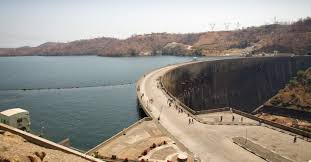CBZ launches finance scheme to mechanise agriculture
CBZ Bank says it remains resolute in supporting the agricultural sector through provision of financial solutions that enable farmers to access equipment and machinery they need to grow their businesses.
Shadreck Chinembiri, the CBZ Bank head of agribusiness made these remarks at the mechanisation show day at Bison Willowvale Workshop in Harare.
The bank has designed various credit facilities under its agribusiness division to offer a range of financial products to farmers to help build their farming capital requirements.
According to CBZ the credit facilities include loans for capital and operational expenditure, overdrafts for operational expenditure, asset lease finance for purchasing equipment and machinery as well as order financing to finance particular special orders.
CBZ is arguably the biggest agriculture sector financier, undoubtedly changing the complexion of the sector through extension of support to government initiatives.
The agriculture sector has been going through an expansive makeover in the Second Republic, as the government introduced John Deere and the Belarus tractor facilities, which will definitely spur the country’s mechanisation and modernisation plans for the farming sector.
This has put the country on a pedestal towards attaining the US$8,2 billion agriculture industry it envisions to achieve by 2025.
Agriculture is the mainstay of Zimbabwe’s economy hence requires dedicated effort to be restored to its former levels as the breadbasket of Africa.
While addressing participants at the workshop, Chinembiri said the bank’s commitment to back the agriculture sector is reflected through the range of tailored financial products and services offered by the bank to meet needs of farmers and the agribusinesses players in general.
He said the bank was actively on the ground, crafting mechanisms including monetary solutions to make farmers access the equipment and machinery they need to grow their businesses.
“We understand the challenges that farmers face, and we are committed to working with you to find solutions that enable you to achieve your goals. The CBZ agribusiness division is currently running an asset finance scheme.
“Under this scheme, we have the Belarus scheme which encompasses tractors and combine harvesters, it is readily available for farmers benefit. It is imperative for me to reiterate to you that the Belarus Farm Implements Scheme equipment is reliable, and we have players that will be assisting with technical advice, service, and repairs of machinery,” said Chinembiri.
Further indicating that the move was designed to transform Zimbabwe’s agricultural landscape through investment in agriculture mechanisation, ultimately contributing to the growth of the local economy.
Government has lately been churning out initiatives to enhance operations in the agriculture sector in line with the Agriculture and Food Systems Transformation Strategy, the Agriculture Recovery Plan and the National Development Strategy 1 (NDS) in pursuit of becoming an empowered and prosperous upper middle income society by 2030.
Overally this is designed to increase productivity through attainment of food self-sufficiency and exports.
Ministry of Lands, Agriculture, Fisheries, Water and Rural Development, Engineer Edwin Zimunga, said mechanising the agriculture sector is crucial to spur the sector’s performance and set the economy on a positive growth trajectory.
“For the country to attain its vision 2030 goals with regards to agriculture, as Zimbabwe, we need to industrialise our agriculture and this will be attained though the use of machinery.
“So we are saying all the processes involved in agriculture from land preparation, planting , irrigation and harvesting should be done through the use of machinery and this include post-harvest technologies,” said Eng Zimunga.
Massive agriculture mechanisation remains a key enabler for the country to realise a competitive and successful agricultural sector.
Efforts to increase the number of working tractors, combine harvester and irrigation systems are currently underway across the country.
Mechanisation increases labour efficiency and enhances farm productivity per worker. By its nature it reduces the quantum of labour needed to produce a unit of output.
According to Food and Agriculture Organisation (FAO) mechanisation mean that more tasks can be completed at the right time and greater areas can be farmed to produce greater quantities of crops while conserving natural resources.-ebusinessweekly











